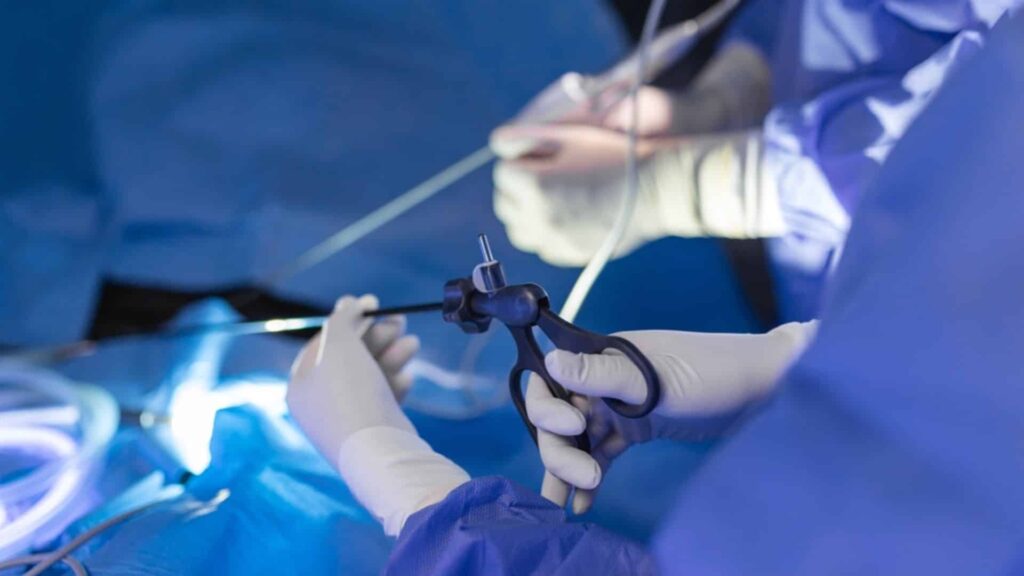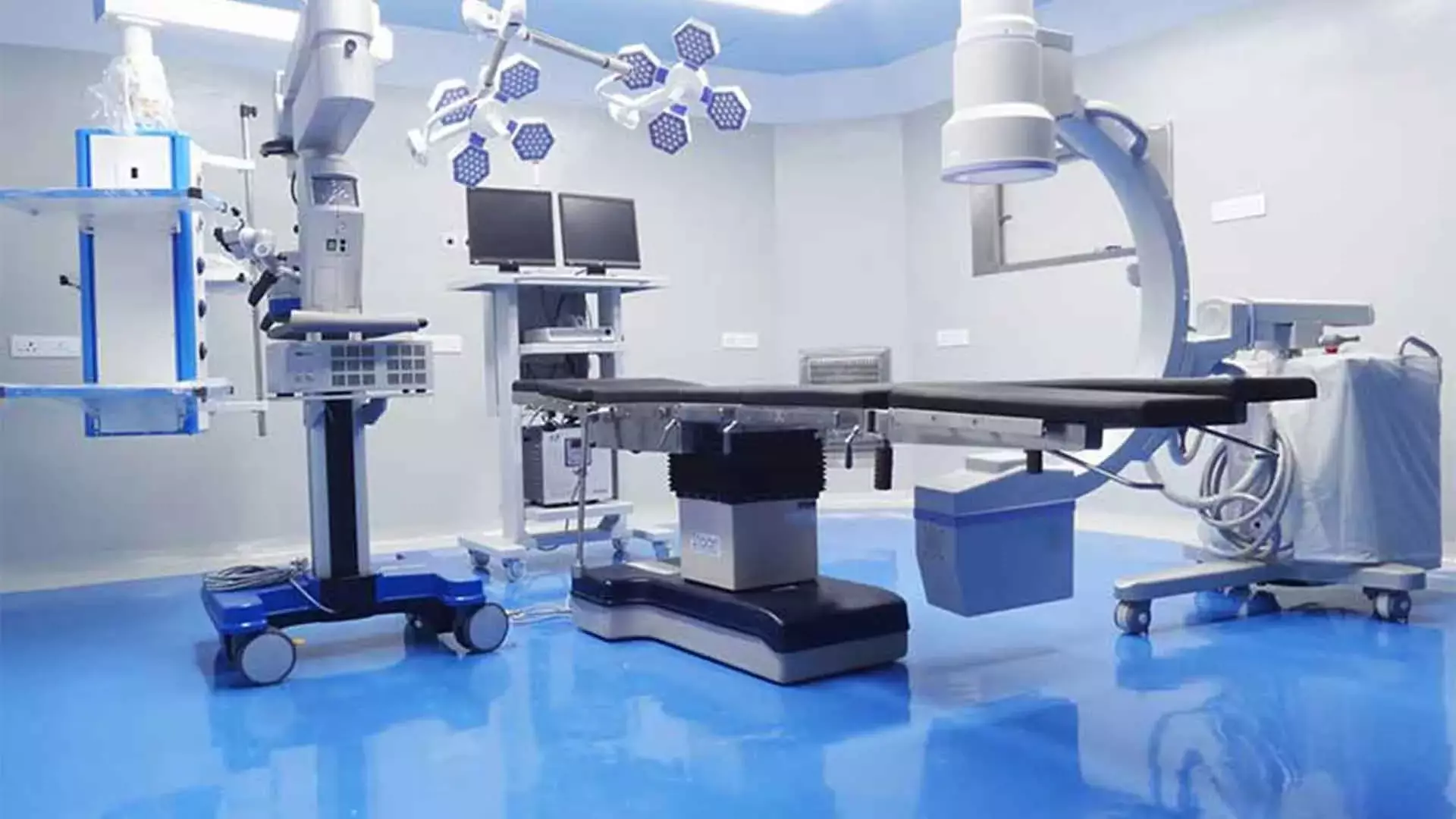Uterine Fibroid Embolization: Relief Without Surgery
- Minimally invasive treatment to shrink fibroids and alleviate symptoms.
- Quick recovery with no scars or major complications.
- Effective solution for heavy bleeding, pain, and pressure.
- Preserves the uterus, offering a safe alternative to surgery.
- Personalized care for lasting relief and improved well-being.
Uterine Fibroid Embolization: A Minimally Invasive Solution for Relief and Recovery
Relief from fibroid symptoms, renewed confidence in your health – comprehensive care at Vanchilingam.
Uterine Fibroid Embolization (UFE) is a minimally invasive procedure designed to effectively treat uterine fibroids while preserving the uterus. Our advanced techniques and patient-centered approach provide lasting relief and a quicker recovery, empowering women to regain control of their health and quality of life.
What is Uterine Fibroid Embolization?
Uterine Fibroid Embolization is a safe, minimally invasive procedure used to treat fibroids—noncancerous growths in the uterus that can cause symptoms such as heavy bleeding, pelvic pain, and symptoms due to pressure on your urinary bladder or bowel. By blocking the blood supply to fibroids, UFE shrinks them and alleviates symptoms, offering an effective alternative to traditional surgical methods.

Common Symptoms of Uterine Fibroids:
- Heavy or prolonged menstrual bleeding.
- Pelvic pain or pressure symptoms.
- Frequent urination or difficulty emptying the bladder.
- Constipation or bloating.
- Pain during intercourse.
Causes and Risk Factors
Uterine Fibroid Embolization: Relief Without Surgery
While the exact cause of uterine fibroids is unknown, certain factors increase the risk of developing them:
- Hormonal Factors: Estrogen and progesterone stimulate fibroid growth.
- Genetics: A family history of fibroids increases the risk.
- Age and Race: Fibroids are more common in women aged 30-50.
- Lifestyle Factors: Obesity, heavy fat diet, and lack of exercise may contribute.
Advanced Diagnostics
At Vanchilingam, we use cutting-edge diagnostic tools to assess the size, location, and severity of fibroids to ensure the most effective treatment plan:
- Ultrasound: The first-line imaging tool for detecting fibroids.
- MRI: Provides detailed imaging for complex or large fibroids.
- CT Angiogram: To identify the blood supply to fibroid, aiding precision embolization procedure.
- Pelvic Exam: Identifies fibroids during a physical examination.
Why Choose Uterine Fibroid Embolization?
- Minimally Invasive: Scarless, pinhole procedure with very short recovery time.
- Uterus Preservation: Maintains fertility and avoids a hysterectomy.
- Quicker Recovery: Most patients resume normal activities within a week.
- Effective Symptom Relief: Significant improvement in bleeding and pain.
Why Choose Vanchilingam for UFE?
- Specialized Expertise: Our interventional radiologist is highly skilled in performing UFE with precision.
- State-of-the-Art Facilities: Equipped with the latest imaging and procedural technology.
- Personalized Care Plans: Tailored to each patient’s unique needs and goals.
- Comprehensive Support: From diagnosis to post-treatment recovery, we provide guidance every step of the way.
- Compassionate Approach: Focused on your comfort, well-being, and long-term health.
Reclaim Your Life from Fibroid Symptoms
Don’t let uterine fibroids disrupt your daily life. At Vanchilingam Advanced Neurology and Stroke Care, our Uterine Fibroid Embolization (UFE) provides a modern, minimally invasive solution to relieve discomfort and restore balance to your health. With expert care and a patient-first approach, we help you find freedom from fibroid symptoms and regain control over your well-being.
Take the first step toward a healthier, more confident future – get in touch with us today to learn how UFE can make a difference in your life.
Meet the Specialists
Our team of dedicated specialists brings years of expertise and a passion for delivering personalized care.
Real Experiences, Real Results
Discover how Dr. Vanchilingam Advanced Neuro & Stroke Hospital has transformed the lives of our patients. Also hear our specialists talk about the services and solutions we offer for various neurological issues.





OUR SPECIALITY
Acute Stroke Unit
The Acute Stroke Unit is an acute neurological ward providing specialist services for people who have had a new suspected stroke. On the Acute Stroke Unit we provide: Thrombolysis treatment -treatment is started in the Emergency Department and you will have the rest of your Treatment and monitoring on the Acute Stroke Unit
OUR SPECIALITY
Advanced Neuro ICU
A neuro ICU is an Intensive Care Unit which is particularly devoted to a high – quality care of patients with the neurological problems that are life-threatening in nature. The neuro ICU of our hospital is a complete state of the art and a full-fledged one designed to provide almost all sorts of advanced neurological care to the normal patients as well as the patients in the emergency.
OUR SPECIALITY
Advanced Neuro Imaging
Our radiology department is a state of the art department with all the necessary infrastructure that is essential for effectively dealing with the neuro and neurosurgery emergencies at its best. The advanced neuroimaging techniques used by our doctors are as discussed below.
OUR SPECIALITY
Neuro interventional Cath Lab
A neuro-interventional Cath lab in a neurodiagnostic Centre is a specialized catheterization laboratory which has all the necessary diagnostic imaging equipment that is particularly used for the purpose of visualization of the arteries, veins and other vascular malformations of the brain and spinal cord.
OUR SPECIALITY
Neuro-Surgery Operating Room
The neurosurgery operating room of Dr.Vanchilingam Hospital, Neurosurgery Hospital is a fully functional and a state of art one that has the adequate infrastructure for effectively carrying out even the most complicated neuro surgeries with ease.
What is Uterine Fibroid Embolization (UFE)?
Uterine Fibroid Embolization (UFE) is a minimally invasive procedure used to treat uterine fibroids by cutting off their blood supply. This causes the fibroids to shrink, relieving symptoms such as heavy bleeding, pelvic pain, and pressure on surrounding organs. It is an effective alternative to surgery, allowing patients to preserve their uterus and recover quickly.
Who is a good candidate for UFE?
UFE is suitable for women experiencing symptoms related to uterine fibroids, such as heavy menstrual bleeding, pelvic pain, frequent urination, or bloating. It is a preferred option for those looking to avoid hysterectomy and maintain their fertility. A consultation with an interventional radiologist can help determine if UFE is the right treatment.
How is UFE performed?
During the procedure, a specialized doctor (interventional radiologist) inserts a tiny catheter into the artery supplying blood to the fibroids. Small particles are then injected to block the blood flow, leading to the shrinkage of fibroids over time. The procedure is performed under local anesthesia with mild sedation and does not require large incisions.
What are the benefits of UFE over traditional surgery?
- Minimally invasive – No major surgery or large incisions.
- Quick recovery – Most patients return to normal activities within a week.
- Preserves the uterus – Unlike a hysterectomy, UFE keeps the uterus intact.
- Effective symptom relief – Significant improvement in pain and bleeding.
- Lower risk of complications – No major surgical risks such as excessive bleeding or infection.
How long does it take to recover from UFE?
Most patients experience a recovery period of about one week, with some mild cramping and fatigue for a few days. Unlike traditional surgery, which may require several weeks of downtime, UFE allows a faster return to daily activities.
Is UFE a permanent solution for fibroids?
UFE effectively shrinks fibroids and alleviates symptoms in most patients. However, fibroid recurrence is possible, especially in younger women. Regular follow-ups and maintaining a healthy lifestyle can help prolong the benefits of the procedure.
What are the potential side effects or risks of UFE?
Embolization offers several advantages, including:
- Minimally invasive: No need for open surgery.
- Faster recovery: Shorter hospital stays and quicker return to daily activities.
- Symptom relief: Reduces pressure on the spinal cord, alleviating pain and neurological deficits.
- Lower complication risks: Helps prevent bleeding and long-term spinal damage.
Will I still have my menstrual cycle after UFE?
Yes, most women continue to have their menstrual cycles after Uterine Fibroid Embolization. Some may experience lighter or shorter periods, while others may have temporary changes. In rare cases, particularly in women nearing menopause, periods may stop permanently.
Can UFE help with fertility preservation?
Uterine Fibroid Embolization is a uterus-preserving procedure and may be an option for women who wish to maintain their fertility. However, its impact on future pregnancies varies. If fertility is a major concern, discussing alternative treatments with a specialist is recommended.
Why choose Vanchilingam Advanced Neurology and Stroke Care for UFE?
At Vanchilingam, we provide expert care using advanced imaging techniques and personalized treatment plans. Our highly skilled interventional radiologists ensure precision in every procedure, focusing on patient safety, comfort, and long-term relief from fibroid symptoms.
How can I book a consultation for UFE?
You can schedule a consultation at Vanchilingam Advanced Neurology and Stroke Care by contacting our team through the website enquiry/appointment form or call us directly. We will assess your condition, discuss treatment options, and guide you through the process of Uterine Fibroid Embolization.















